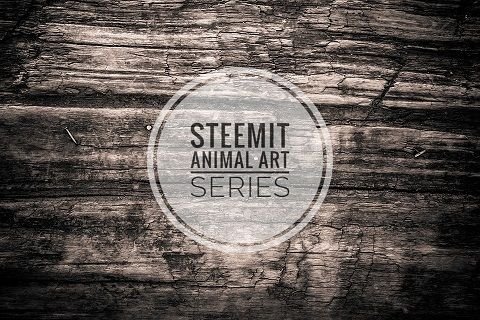
The Peacock
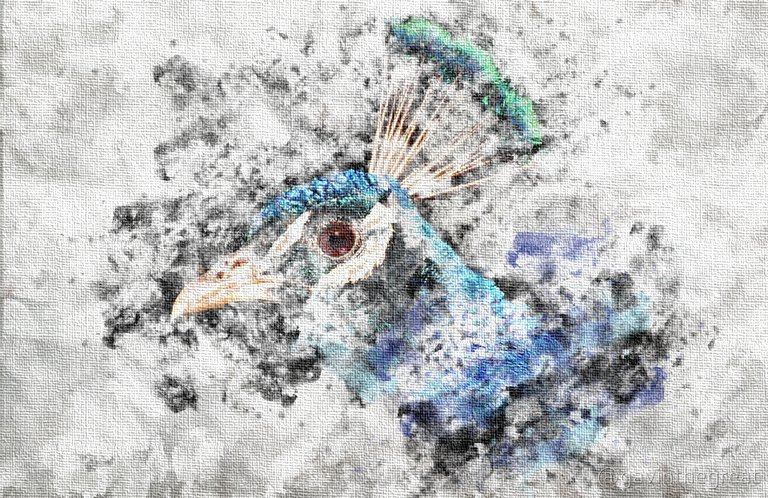
The term "peacock" is commonly used to refer to the birds of both the sexes. Technically, only males are peacocks. Females are peahens, together they are called peafowl. The blue peacock depicted here lives in India and Sri Lanka. The peacock is the national bird of India.
The Tiger
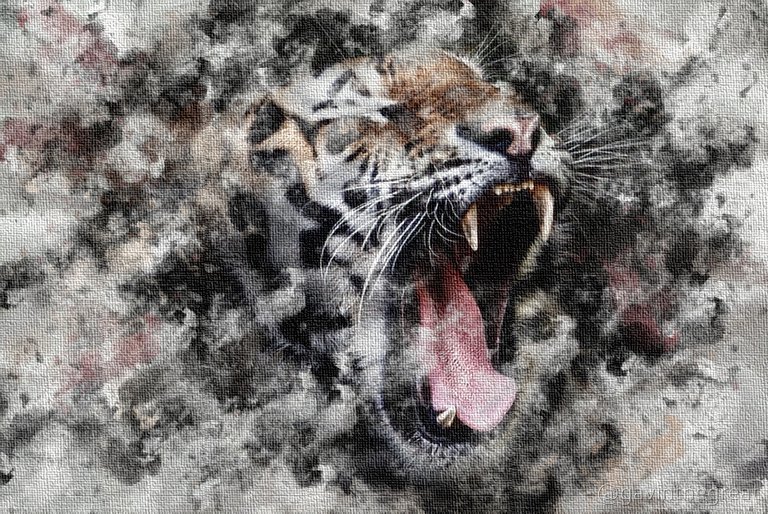
Subspecies of the tiger include the Sumatran Tiger, Siberian Tiger, Bengal Tiger, South China Tiger, Malayan Tiger and Indochinese Tiger. Stripe density varies by subspecies. The stripes on a Sumatran tiger are closer together than those on any other subspecies. No two tigers have the same stripes. Like human fingerprints, their stripe patterns are unique to each individual. There are White tigers but they are not a separate subspecies nor are they albino. They are leucistic, this is the result of a recessive gene from each parent that affects pigmentation. The white tigers typically have blue eyes.
THE OWL
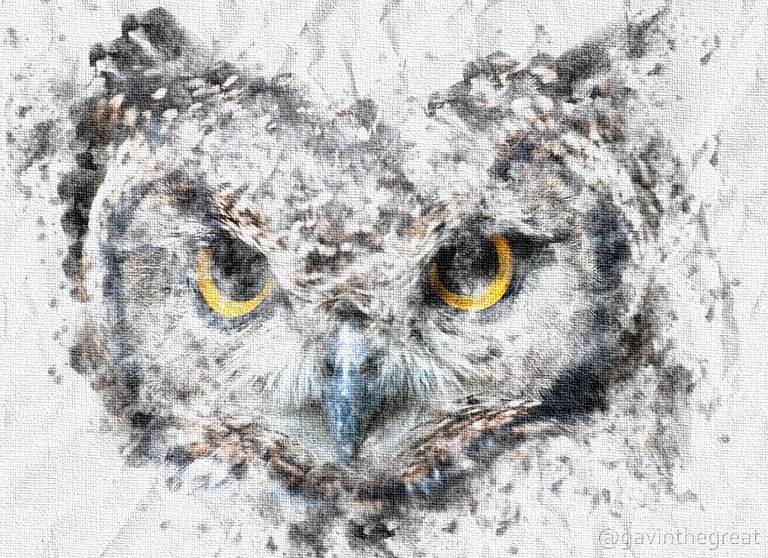
Of all an owl's features, perhaps the most striking is it's eyes. An owl's eyes are large in order to improve their efficiency, especially under low light conditions. Owls cannot roll or move its eyes, they are always forward facing, one of the reasons for the spinning heads... Most Owls see in limited color or in monochrome, their eyes are large in order to improve their efficiency, especially under low light conditions.
THE GIRAFFE
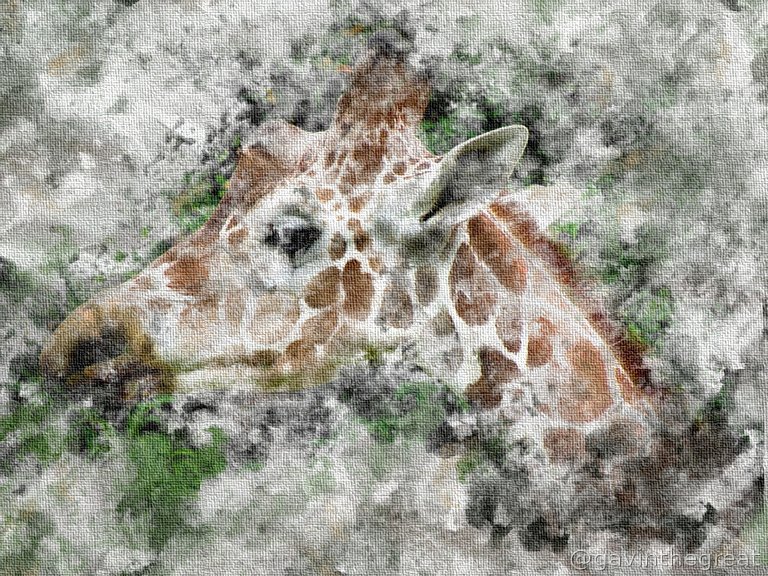
Giraffes have a scattered range that extends from Chad in the north to South Africa in the south, and from Niger in the west to Somalia in the east. They usually inhabit savannahs and woodlands. A group of giraffes is aptly called a tower, towers typically have 10 to 20 members. Giraffes typically only sleep around 20 minutes or less per day. They usually get their sleep in quick power naps that last just a couple of minutes.
THE EAGLE
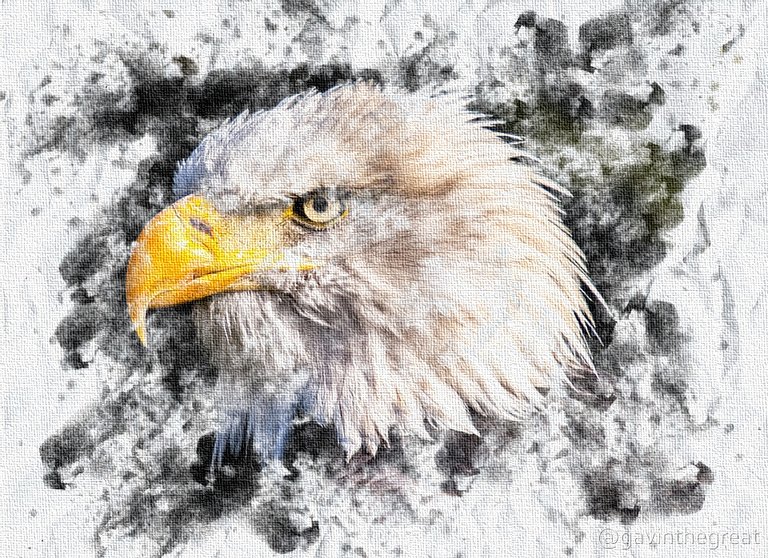
A bird of prey found in North America. It's range includes most of Canada and Alaska, all of the contiguous United States, and northern Mexico. They build the largest tree nests of any bird recorded, they reach up to 4 m deep, 2.5 m wide, and weighing over 1 ton.
THE LION
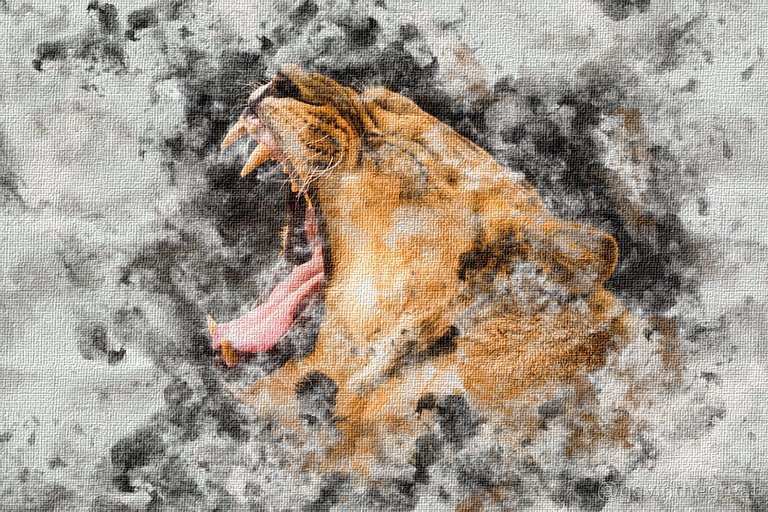
The lion population in Africa has been reduced by half since the early 1950s. Today, fewer than 21,000 remain in all of Africa. Only about 1 in 8 male lions survive to adulthood, the majority of lions die shortly after being kicked out of their pride around the age of 2. Trophy hunting is also extemely devastating for lions. When an adult male (the most sought-after trophy) is killed, his death destabilizes and may destroy an entire pride. This in turn wipes out the genes of the largest and most healthy males.
THE PARROT
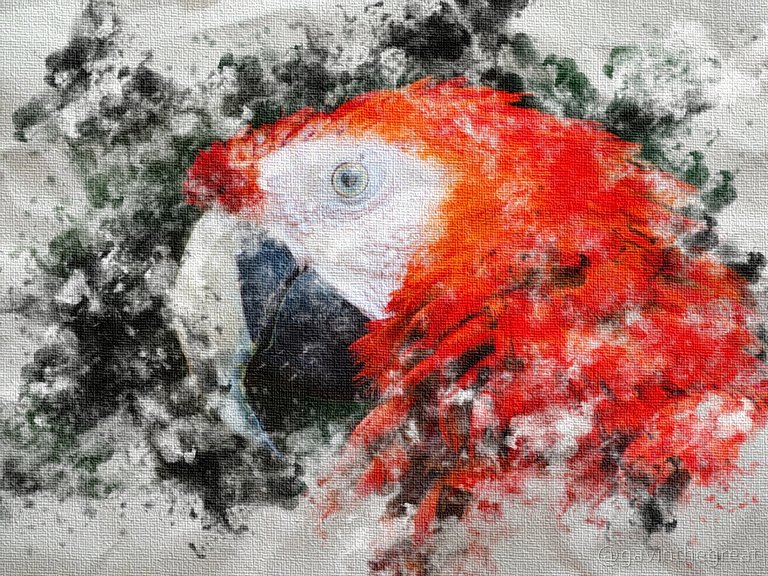
It is estimated that 14 million birds live in captivity across the United States, a great many of them parrots. Parrots, also known as psittacines are birds of the roughly 393 species including parakeets, macaws, cockatiels and cockatoos. A third of the world’s parrots face extinction due to a combination of habitat destruction and persistent poaching for the pet trade. Among the most endangered parrots are the kakapo, with less than 150 in existence, and the orange-bellied parrot of Australia, with fewer than 50 remaining.
THE HORSE
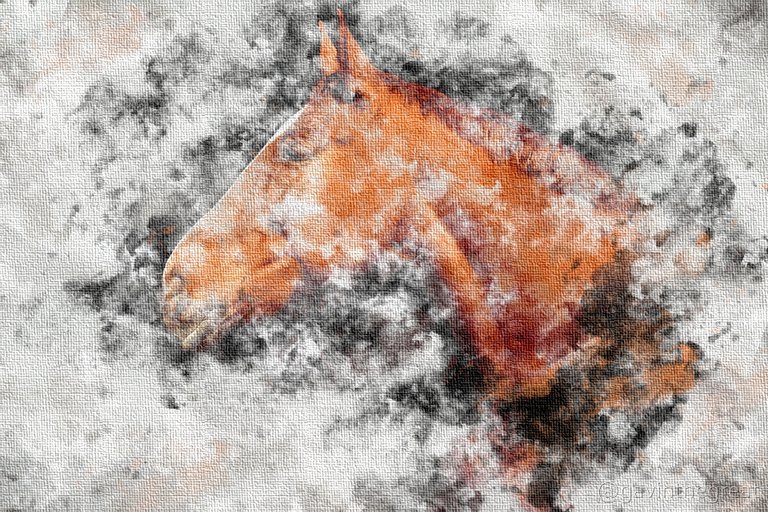
The Przewalski’s Horse is the only truly wild horse species still in existence. The only wild population is in Mongolia. There are however numerous populations across the world of feral horses, such as Mustangs in North America. Approximately 4.6 million Americans work in the horse industry in one way or another. The US horse industry has an economic effect of $39 billion annually on just nine million American horses. There are approximately 58 million horses in the world and the vast majority are looked after by humans.
THE ROOSTER
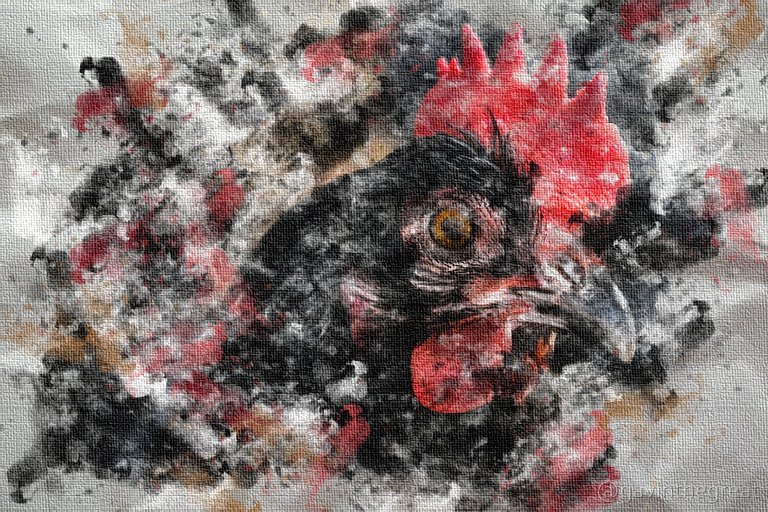
The term "rooster" originates in the United States and the term is widely used throughout North America, as well as Australia and New Zealand. But most other parts of the world this bird is known by it's older name, Cock or Cockerell. The best thing about chickens though is that they are the closest living relative to the T-Rex.
THE SNOW LEOPARD
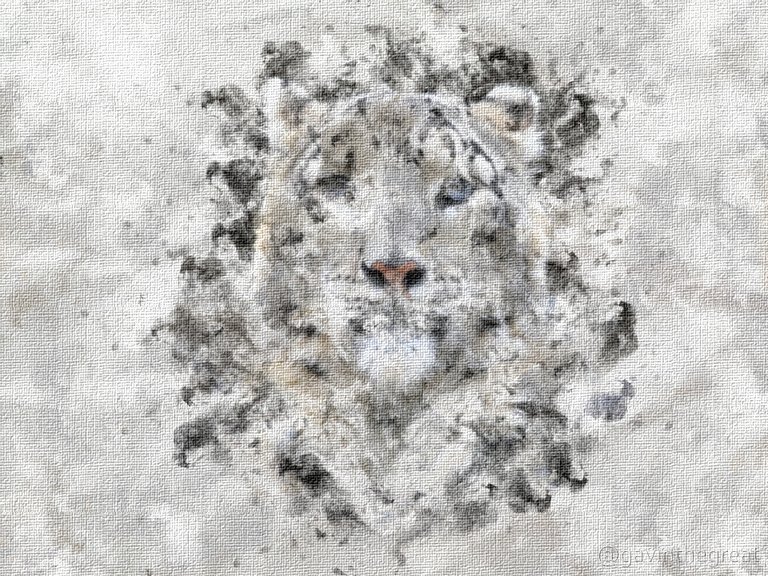
The Snow Leopard is a large cat native to the mountain ranges of Central and South Asia. They can be seen in 12 countries—including China, Bhutan, Nepal, India, Pakistan, Afghanistan, Russia, and Mongolia. Despite a range of over 2 million km2, scientists estimate that there may only be between 3,900 and 6,500 snow leopards left in the wild. In captivity, snow leopards have been known to live for as long as 22 years. Life in the wild is much harder, so the life expectancy of wild snow leopards is more likely to be 10 to 12 years.
All images in this series are my own work. Images without watermarks are available.
Take care and have a great day everyone!

This post was resteemed by @steemvote and received a 29.97% Upvote
I love your style! The tiger and rooster are my favorites. They seem to emerge out of the texture. Do you paint with acrylic or is it on psd?
Hi thank you very much! These are done digitally. I do all my designs and art digitally.
Yea the rooster is my favorite too. I did The Rooster, The Tiger and The Lion first. Then the others followed.
This was such a great art series @gavinthegreat ! I loved them all , upped and resteemed on both accounts , loved this post with all the information included , great way to showcase the series ! 😀👍✌💕👌

Thank you very much, I really appreciate the support and glad you like the post :)
Your very welcome !💕😊
Great work @gavinthegreat! Thanks for sharing with us
Thanks for the support!
Awesome post great work fraind..
Thanks!
great post.
Thanks.
Wow this is amazing! I like your works! Very impressive. Keeping up the great work!!
Thank you @kingsten!
Wow! This is incredible! I love your work! I would love to see more content. BTW, what kind of technic did you use?
You got a 0.66% upvote from @postpromoter courtesy of @karenmckersie!